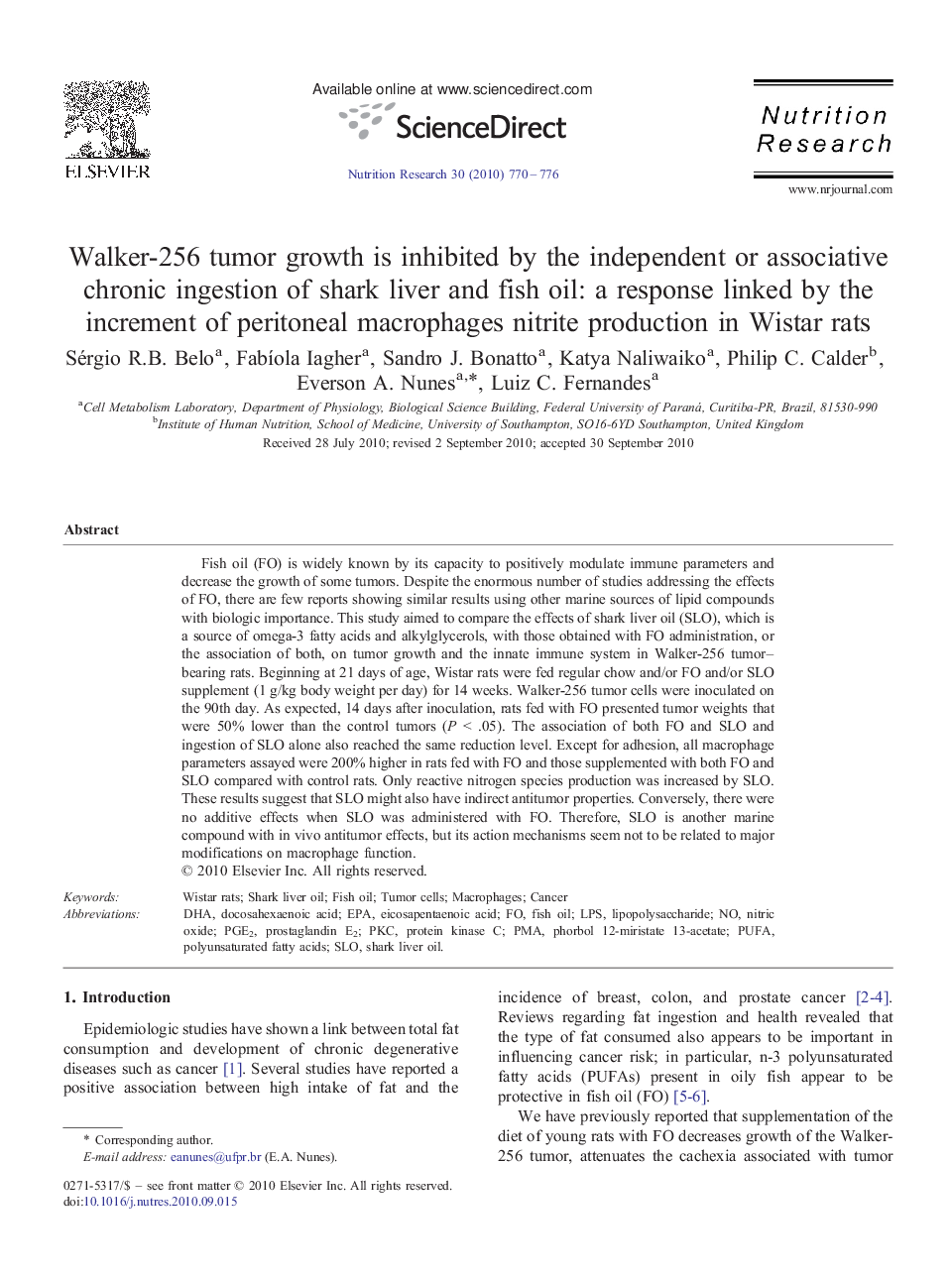| Article ID | Journal | Published Year | Pages | File Type |
|---|---|---|---|---|
| 2809671 | Nutrition Research | 2010 | 7 Pages |
Fish oil (FO) is widely known by its capacity to positively modulate immune parameters and decrease the growth of some tumors. Despite the enormous number of studies addressing the effects of FO, there are few reports showing similar results using other marine sources of lipid compounds with biologic importance. This study aimed to compare the effects of shark liver oil (SLO), which is a source of omega-3 fatty acids and alkylglycerols, with those obtained with FO administration, or the association of both, on tumor growth and the innate immune system in Walker-256 tumor–bearing rats. Beginning at 21 days of age, Wistar rats were fed regular chow and/or FO and/or SLO supplement (1 g/kg body weight per day) for 14 weeks. Walker-256 tumor cells were inoculated on the 90th day. As expected, 14 days after inoculation, rats fed with FO presented tumor weights that were 50% lower than the control tumors (P < .05). The association of both FO and SLO and ingestion of SLO alone also reached the same reduction level. Except for adhesion, all macrophage parameters assayed were 200% higher in rats fed with FO and those supplemented with both FO and SLO compared with control rats. Only reactive nitrogen species production was increased by SLO. These results suggest that SLO might also have indirect antitumor properties. Conversely, there were no additive effects when SLO was administered with FO. Therefore, SLO is another marine compound with in vivo antitumor effects, but its action mechanisms seem not to be related to major modifications on macrophage function.
